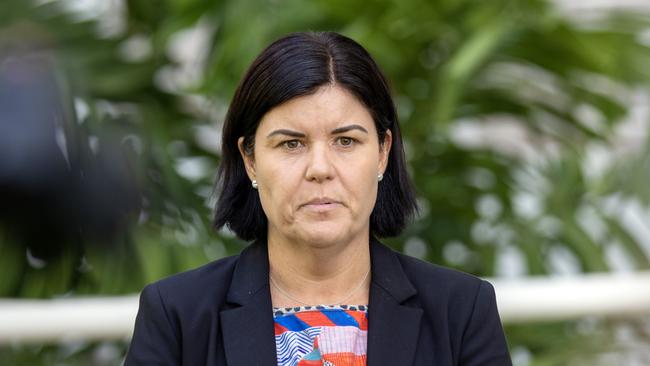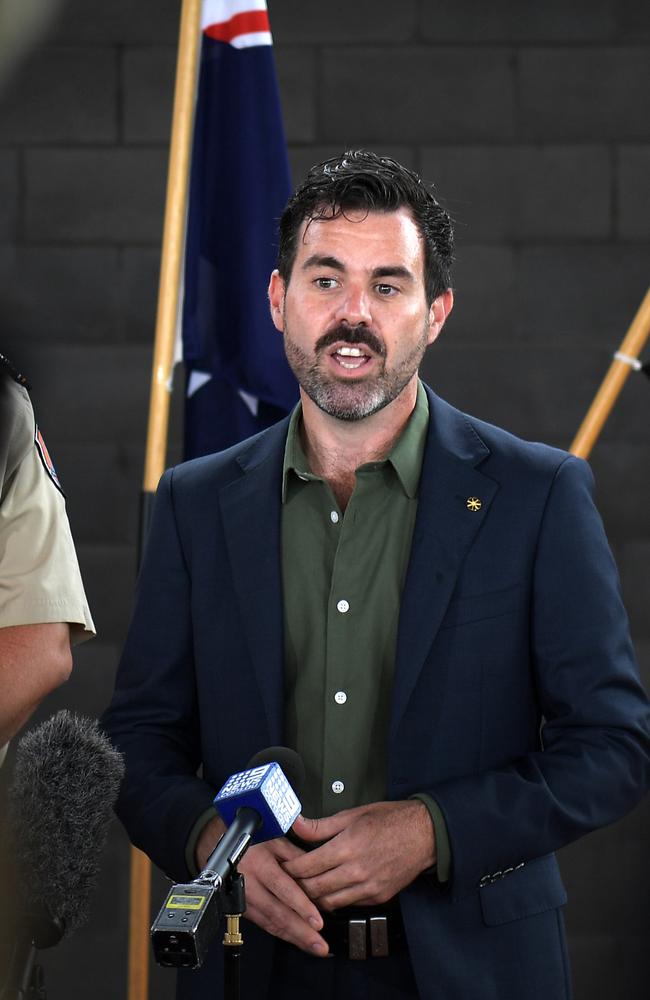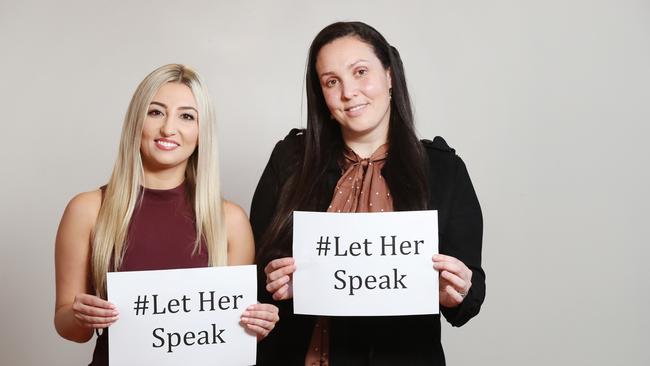NT left behind as Queensland moves to publicly name accused sexual offenders
The NT is set to become the only jurisdiction that protects the identities of alleged sexual offenders, but our government says it’s not acting on the ‘complex’ issue. Vote in our reader poll.
Northern Territory
Don't miss out on the headlines from Northern Territory. Followed categories will be added to My News.
The Northern Territory is on track to become the only place in the country allowing accused rapists to remain anonymous.
Queensland and the NT are the only Australian jurisdictions that automatically prohibit someone charged with rape or serious sexual offences from being publicly identified until they are committed to stand trial – a process that can take years.
However the Queensland government tabled legislation on Thursday to overturn the outdated protection.
Following the news, Chief Minister Natasha Fyles, who was the attorney-general three years ago, said “we’re always looking at law reform” despite a government spokeswoman saying the law was not currently being reviewed just days earlier.

“When I was Attorney General (2016-2020) we did the work around Let Her Speak and we worked closely with advocates in this space,” she said.
“We did consider it at that point.
“We don’t want to inadvertently identify victims … it’s complex and we need to make sure that we get it right.
“But we will continue to ensure this type of legislation is fast moving, we have seen other jurisdictions change their legislation and we are looking at those changes.”

However on the weekend a spokeswoman for NT Attorney-General Chansey Paech said the Territory government was not looking to follow Queensland and the rest of the country.
“Sex offenders can (and are) named, but the Sexual Offences (Evidence and Procedure) Act has provisions that prevent the defendant being named before (being) committed for trial or sentence,” the spokeswoman said.
“There is currently no consideration being given to changing this.”
#LetHerSpeak campaign creator and director and sexual assault survivor advocate Nina Funnell said that was “not good enough”.
“What that tells me is that they are giving every consideration to the paedophiles,” she said.

“Once the Queensland reforms pass it will leave the NT completely out of step with the rest of the country.
“This should be a priority area because what is more important than the safety of our children?”
“It is an urgent priority in any jurisdiction but even more so if you’re the nation’s capital of child sexual abuse.”
The Australian Institute of Health and Welfare’s latest available data, spanning 2020-21, shows substantiated cases of child abuse and neglect were far higher in the NT than in any other state of territory.
For children aged under one, there were 63.8 NT children per 1000 who were the subject of a substantiated notification – compared to a national average of 16.6.
For all children aged 0-7, the rate of substantiated abuse and neglect in the NT was 26 kids per 1000 children, next to 8.8 nationally.

Ms Funnell said the suppression of alleged paedophiles and rapists’ identities compromised justice.
“In no other crime, including murder and kidnapping, do we offer this bizarre special protection,” the Walkley Award-winning journalist said.
“We know that the nature of sexual offending is that very few of these offenders are one-time offenders.
“Victims are often groomed by perpetrators to believe they are the only one, that it was their fault.
“It is not until they see a co-victim of their offender that they realise it wasn’t just them.
“Naming the offender the moment they are charged empowers other victims of that same offender to come forward.”
In July 2020, Territory sexual abuse victims over the age of 18 were granted the freedom to self-identify in the media following reforms to section six of the Sexual Offences (Evidence and Procedure) Act.
However they can only publicly name themselves if legal proceedings – including all appeals processes – have finished, leaving Territorian survivors among the most gagged in the country.
The NT government also tabled legislation in May to modernise some sexual offence laws, following years of advocacy from Ms Funnell, 2021 Australian of the Year Grace Tame and other sexual abuse victims.
It includes new laws against stealthing – which is lying about or removing a condom during sex – and replacing the words “sexual relationship” with “repeated sexual abuse” in the criminal code.
Ms Funnell said while those reforms were welcomed, the government was “tinkering at the edges of a broken system” instead of undergoing a strategic, comprehensive review of its laws.




